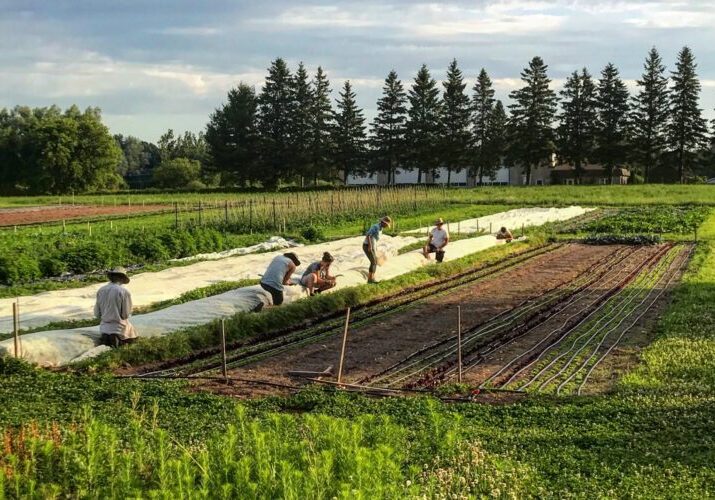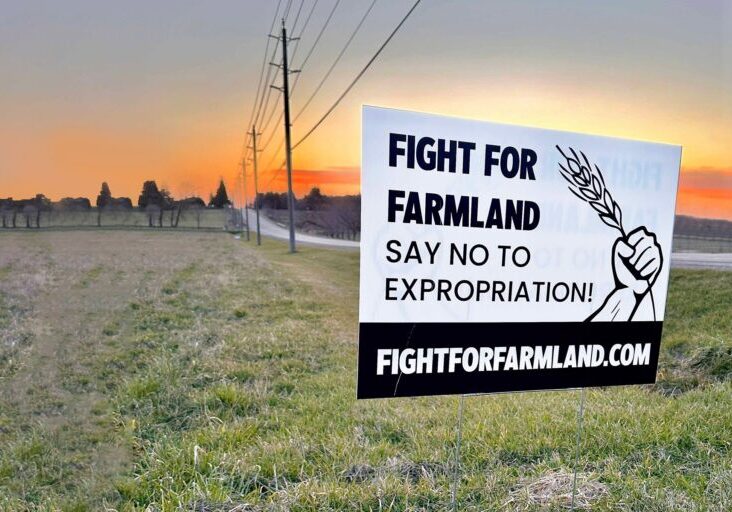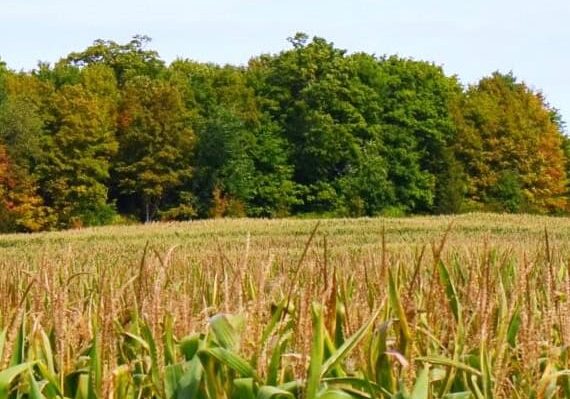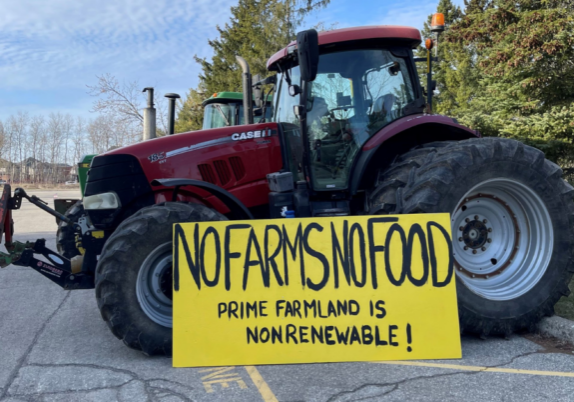Milk Busting Myths and Slaying Demons
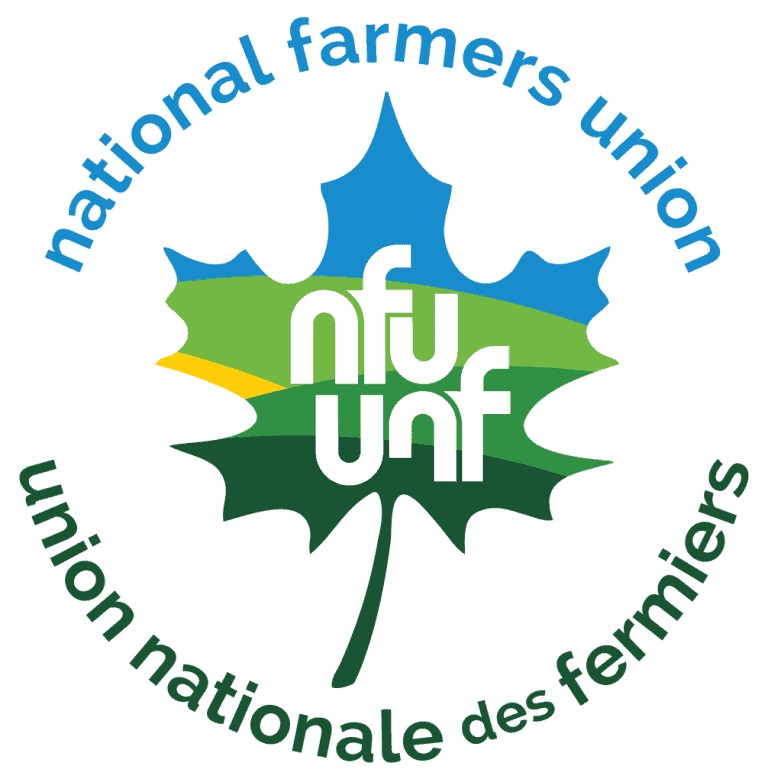
Canada’s supply management system has come under fire  recently after the US President’s visit for the G7 summit. While there are five supply managed commodities, milk has faced the most scrutiny. In both social and regular media, there is a significant amount of misinformation being dispersed. What follows is a list of five myths and the reality for Canadian dairy farmers.
recently after the US President’s visit for the G7 summit. While there are five supply managed commodities, milk has faced the most scrutiny. In both social and regular media, there is a significant amount of misinformation being dispersed. What follows is a list of five myths and the reality for Canadian dairy farmers.
Canadian dairy farmers fix the price for their milk. The price that dairy farmers receive for their milk is negotiated with representatives from three groups – consumers, processors, and the farmers. Prices also vary with the end use of the fluid milk, which varies from class one with the highest value and class seven the lowest.
Farmers limit the milk supply. The Canadian Milk Supply Management Committee determines the demand for milk and milk ingredients, and they determine how much milk is needed. Farmers have no input into determining supply. Instead of dumping milk if it is surplus to their quota allotment, farmers pay a penalty for their surplus which discourages over production. Based on CMSMC decisions, Canadian dairy farmers practice milk production discipline where they will increase production if the market demands more milk and reduce production if consumption falls. They are also able to respond quicker to changes in the milk market when people change their preferences for different milk products.
Supply management make farmers inefficient. The cost of production formula (COPF) is one of the guides that determines the milk price farmers receive. The COPF excludes the least efficient farmers from the formula, so at any time, there is always a number of farmers that do not achieve their costs, which encourages the creation of efficiencies.
Canada’s system penalizes low income and poor families. Dairy farmers have the option to donate a portion of their production to food banks. The price of many other goods and services also affect vulnerable members of our society, including communications, energy, insurance, and shelter costs. Poverty is a systemic issue and needs to be addressed by government holistically, not just by farmers. But dairy farmers do recognize the need for all of society to step up, and they do so with their contributions to the food bank and the school milk program.
Politicians support supply management because of the dairy votes and the dairy lobby. It has been suggested that the Liberals support supply management because of vote-rich Ontario and Quebec. However, the electoral results from dairy regions in Quebec and Ontario are consistently Conservative ridings, including the riding of Maxime Bernier, an opponent of supply management. It has also been suggested that “The dairy lobby spends millions of dollars in lobby efforts.” The majority of the money spent advocating on behalf of dairy farmers is directed towards education. Dairy is a small portion of the total money spent by agriculture sectors on lobbying, and that amount pales in comparison with the lobby amounts spent by the natural resource sector, the banking/ finance sector, communications, energy, trade unions, and manufacturing. So if it’s not votes, and it’s not lobby dollars then why do politicians unanimously support supply management? Because this sector of agriculture is sustainable without any subsidies or handouts.
Canadian dairy farmers are not the demon preventing prosperity that the American President and those opposed to supply management have suggested. In fact, the real demon preventing prosperity is the lack of power that American dairy farmers have in their own marketplace. This lack of power forces these farmers to beg for more and more subsidies, herd buyouts, and floor pricing where the government buys and stockpiles surplus milk ingredients. It also forces farmers into the counterproductive scenario of increasing production when prices fall.
The Canadian system ensures that there is never a shortage, and there is never a price spike because of unforeseen circumstances. The 1998 ice storm interrupted milk production for two months with no blip to the supply in the stores and no price increase. Feed shortages can affect the amount of milk produced as was the case in the drought of 2012 and the floods of 2017 while consumers saw no changes in the supply or the price. Dairy farmers appreciate Canadians that support their marketing system and return the favour by making a conscience effort to support their fellow citizens.
 recently after the US President’s visit for the G7 summit. While there are five supply managed commodities, milk has faced the most scrutiny. In both social and regular media, there is a significant amount of misinformation being dispersed. What follows is a list of five myths and the reality for Canadian dairy farmers.
recently after the US President’s visit for the G7 summit. While there are five supply managed commodities, milk has faced the most scrutiny. In both social and regular media, there is a significant amount of misinformation being dispersed. What follows is a list of five myths and the reality for Canadian dairy farmers.Canadian dairy farmers fix the price for their milk. The price that dairy farmers receive for their milk is negotiated with representatives from three groups – consumers, processors, and the farmers. Prices also vary with the end use of the fluid milk, which varies from class one with the highest value and class seven the lowest.
Farmers limit the milk supply. The Canadian Milk Supply Management Committee determines the demand for milk and milk ingredients, and they determine how much milk is needed. Farmers have no input into determining supply. Instead of dumping milk if it is surplus to their quota allotment, farmers pay a penalty for their surplus which discourages over production. Based on CMSMC decisions, Canadian dairy farmers practice milk production discipline where they will increase production if the market demands more milk and reduce production if consumption falls. They are also able to respond quicker to changes in the milk market when people change their preferences for different milk products.
Supply management make farmers inefficient. The cost of production formula (COPF) is one of the guides that determines the milk price farmers receive. The COPF excludes the least efficient farmers from the formula, so at any time, there is always a number of farmers that do not achieve their costs, which encourages the creation of efficiencies.
Canada’s system penalizes low income and poor families. Dairy farmers have the option to donate a portion of their production to food banks. The price of many other goods and services also affect vulnerable members of our society, including communications, energy, insurance, and shelter costs. Poverty is a systemic issue and needs to be addressed by government holistically, not just by farmers. But dairy farmers do recognize the need for all of society to step up, and they do so with their contributions to the food bank and the school milk program.
Politicians support supply management because of the dairy votes and the dairy lobby. It has been suggested that the Liberals support supply management because of vote-rich Ontario and Quebec. However, the electoral results from dairy regions in Quebec and Ontario are consistently Conservative ridings, including the riding of Maxime Bernier, an opponent of supply management. It has also been suggested that “The dairy lobby spends millions of dollars in lobby efforts.” The majority of the money spent advocating on behalf of dairy farmers is directed towards education. Dairy is a small portion of the total money spent by agriculture sectors on lobbying, and that amount pales in comparison with the lobby amounts spent by the natural resource sector, the banking/ finance sector, communications, energy, trade unions, and manufacturing. So if it’s not votes, and it’s not lobby dollars then why do politicians unanimously support supply management? Because this sector of agriculture is sustainable without any subsidies or handouts.
Canadian dairy farmers are not the demon preventing prosperity that the American President and those opposed to supply management have suggested. In fact, the real demon preventing prosperity is the lack of power that American dairy farmers have in their own marketplace. This lack of power forces these farmers to beg for more and more subsidies, herd buyouts, and floor pricing where the government buys and stockpiles surplus milk ingredients. It also forces farmers into the counterproductive scenario of increasing production when prices fall.
The Canadian system ensures that there is never a shortage, and there is never a price spike because of unforeseen circumstances. The 1998 ice storm interrupted milk production for two months with no blip to the supply in the stores and no price increase. Feed shortages can affect the amount of milk produced as was the case in the drought of 2012 and the floods of 2017 while consumers saw no changes in the supply or the price. Dairy farmers appreciate Canadians that support their marketing system and return the favour by making a conscience effort to support their fellow citizens.
Tony Straathof is a farmer in Renfrew County and sits on the Board of the National Farmers Union – Ontario.
These Press Releases might also interest you:
Max Hansgen Acclaimed National Farmers Union – Ontario President / NFU Region 3 Coordinator for Second Term
Between the Lakes Purchase (Treaty 3); Treaty lands and territory of the Mississaugas of the Credit; Guelph, ON (April 8, 2024) – Max Hansgen was re-acclaimed as...


